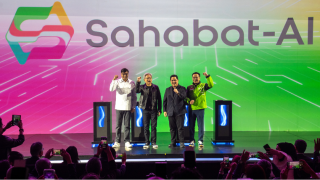Oliver Dowden, the minister responsible for telecoms in the UK parliament, said that mobile operators will be banned by law from adding Huawei equipment to their 5G networks by the end of 2020.
And they will have to remove all existing equipment from 5G networks by 2027, he added.
“This will delay our rollout of 5G,” said Dowden (pictured), the secretary of state for digital, culture, media and sport (DCMS). He put the total cost at “up to £2 billion”.
Chi Onwurah, the former telecoms engineer who is at MP for the opposition Labour Party, questioned this estimate, and also asked about the impact on the emergency services network (ESN), which BT is building in England, Wales and Scotland.
“We have to have confidence in the security and resilience of the networks,” said Dowden. Now the UK will have “one of the toughest resources in the world for telecoms security”.
He was clear about the causes for the change in policy from that announced in January, when his predecessor gave Huawei a 35% limit on equipment and banned it from network cores.
In May the US Department of Commerce (DoC) announced new sanctions that limit the ability of non-US chip suppliers to use US intellectual property, thereby limiting the ability of Japanese, South Korean and Taiwanese chip makers to supply Huawei.
Dowden said today that the UK’s National Cyber Security Centre (NCSC) has “significantly changed their assessment” after the DoC ruling from the US. Because of the US changes in rules “the UK can no longer be confident” in the supply chain, he said.
From the end of 2020 “it will be illegal” for UK mobile operators to source 5G equipment from Huawei. This “will be set out in law by the telecoms security bill”, which is likely to go through parliament over the next few months. “This will delay our rollout of 5G.”
He added: “This has not been an easy decision but it is the right one.”
He said the UK will carry out “a short technical assessment” on risks of using Huawei in older mobile networks and in full-fibre networks. Today’s statement did not cover them.
It is “a global market failure” that the industry is “dangerously reliant on too few vendors” in the industry, said Dowden. He said the UK government is also talking to Samsung and NEC about a possible role for them.
He wants to promote a diversification strategy, to secure the supply chair on non-high risk vendors, to encourage the development of new scale vendors, and to invest in R&D for operators and vendors.
He was probably the first government minister to talk about opportunities for open radio access networks (open RAN or O-RAN) but said that was a long-term transition.
Onwurah said that until today the government, which has been in power 10 years, has been “incomprehensibly negligent”. She said: “The government refused to face reality.” She also mentioned O-RAN and talked of UK companies IP.Access and Filtronic.
“Regrettably our future in the UK has become politicized. This is about US trade policy and not security,” said Huawei spokesman Ed Brewster. “Over the past 20 years, Huawei has focused on building a better connected UK. As a responsible business, we will continue to support our customers as we have always done.”
He added: “We will conduct a detailed review of what today’s announcement means for our business here and will work with the UK government to explain how we can continue to contribute to a better connected Britain.”
Huawei announced its first-half results last night.






